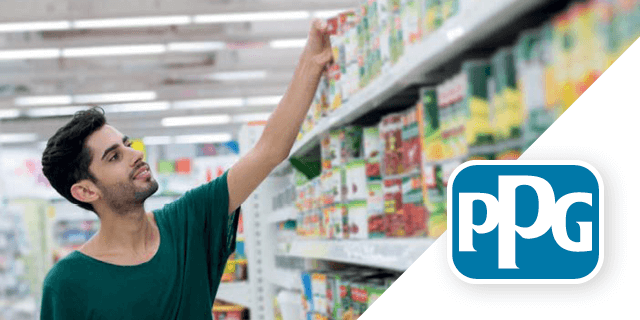The following article originally appeared in Food & Drink Technology. You can also click here to read it.
Food loss and food waste continue to be global concerns, with the United Nations reporting that 14 per cent of food produced worldwide is lost between harvest and retail. A further 17 per cent of global food production is wasted subsequently (11 per cent in households, 5 per cent in food service, and 2 per cent in retail). Altogether, nearly one-third of all food produced globally is lost or wasted, translating into significant social and environmental costs. Therefore, it is no surprise that the UN considers food waste a priority issue, and the United Nations Sustainable Development Goals aim to halve food waste by 2030.
The canned food industry is uniquely positioned to tackle food waste while catering to evolving consumer tastes and preferences for healthier options and diverse protein-based diets. Additionally, younger consumers actively seek brands that prioritise environmental responsibility, gravitating towards products and packages offering superior sustainability benefits like recyclability. In response, packaging manufacturers are introducing innovative designs that enhance product variety, safety, convenience, and shelf life while contributing to the circular economy.
These changes are supporting continued market expansion and growth. According to Smithers report, The Future of Metal Packaging and Coatings to 2027, there has been a significant uptake in food cans and continued growth in the beverage can industry. With the global metal packaging market reaching $123 billion in 2021, global market’s sales have increased by 14 per cent since 2017, reflecting an average annual growth rate of 3.4 per cent. These long-term trends will continue to shape canned food sustainability, innovation, and brand engagement while addressing food waste.
Addressing food waste
By design, the canned food industry plays a significant role in reducing food waste. Metal packaging with advanced coatings acts as a barrier, protecting products from oxygen, light, and bacteria. This barrier extends the shelf life of canned food, preventing premature spoilage and making it more accessible to consumers. Ready-to-eat canned foods provide a quick and nutritious meal solution for busy individuals. Furthermore, the industry collaborates with organisations and governments to support food banks and food aid programs, ensuring that essential nutrition reaches vulnerable populations globally.
Enhanced energy efficiency
Refrigeration accounts for a significant portion of the food industry’s energy consumption because fresh requires substantial energy to maintain its quality during transportation, processing, and storage. In contrast, canned food offers an advantage by eliminating the need for refrigeration, as metal packaging enables safe and affordable storage at room temperature and facilitates long-distance transportation. Additionally, stackable metal cans maximise shipping efficiency, reducing greenhouse gas emissions. In stores, canned food does not require a constant power source, ensuring product quality and safety without energy dependency.
Shift in consumer preferences
As the younger generation embraces the circular economy concept, sustainability considerations are increasingly influencing consumer purchasing decisions. According to a recent Morning Consult report, over two-thirds of Gen Z respondents surveyed stated that sustainability plays a role in their choices regarding food and beverages, with 32 per cent indicating a significant impact. In contrast, only 17 per cent of baby boomers reported sustainability as a major influence on their everyday consumption habits. In response to this shifting landscape, leading consumer brands recognize the importance of adopting more responsible packaging, such as metal, to maintain appeal among the younger demographic.
The role of packaging coatings
Packaging coatings are integral to the success of canned food, serving as a protective barrier between the food and the metal can. Advanced coating technologies enhance safety and prolong shelf life by preventing contamination and corrosion. These coatings also reduce the need for preservatives, improving the quality of canned food as sealed cans lock in the nutrients, preserving the food’s nutritional value for an extended period. PPG offers high-performance and versatile coatings for aluminium and tinplate food cans, whether for threepiece, drawn, or easy-open ends. From the latest in advanced coatings to proven technologies, PPG offers one of the world’s most extensive selections of coatings, including our nonbisphenol PPG Nutrishield line. With experienced R&D and technical service teams, PPG enables can makers and brand owners to achieve sustainability goals, protect their products, and contribute towards UN Sustainable Development Goals.
ABOUT THE AUTHOR
Anurag Raj is PPG’s customer sustainability business partner for packaging coatings. He works closely with PPG’s customers to advance sustainability goals. PPG’s Packaging Coatings business creates effective coating solutions for nearly all metal packaging end-use in the beverage, food, cosmetic, and personal care industries.


